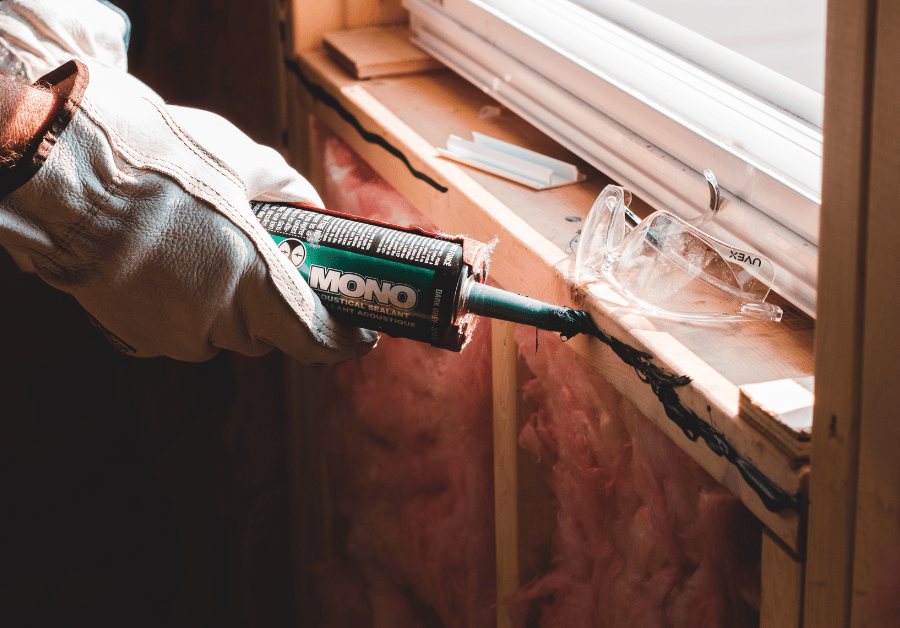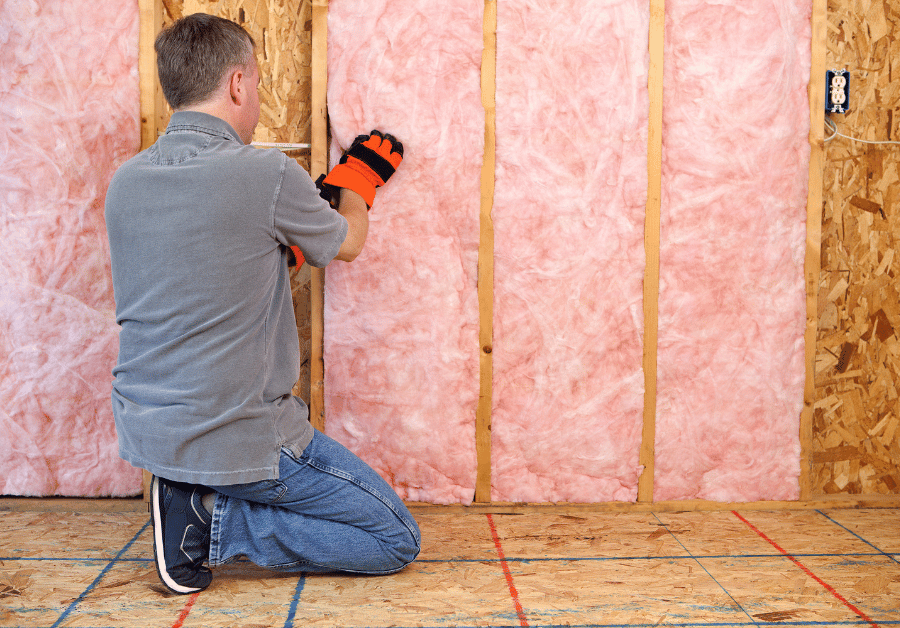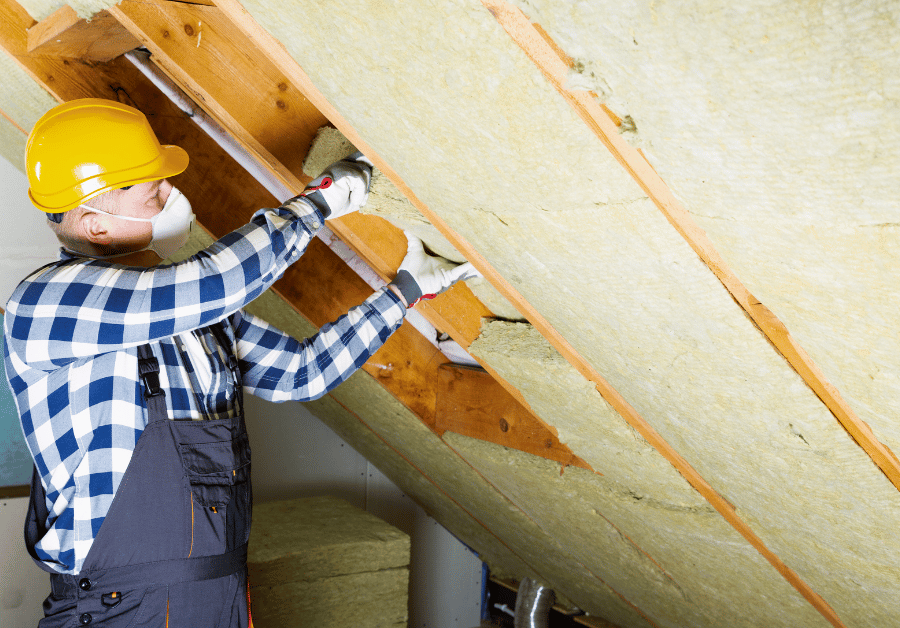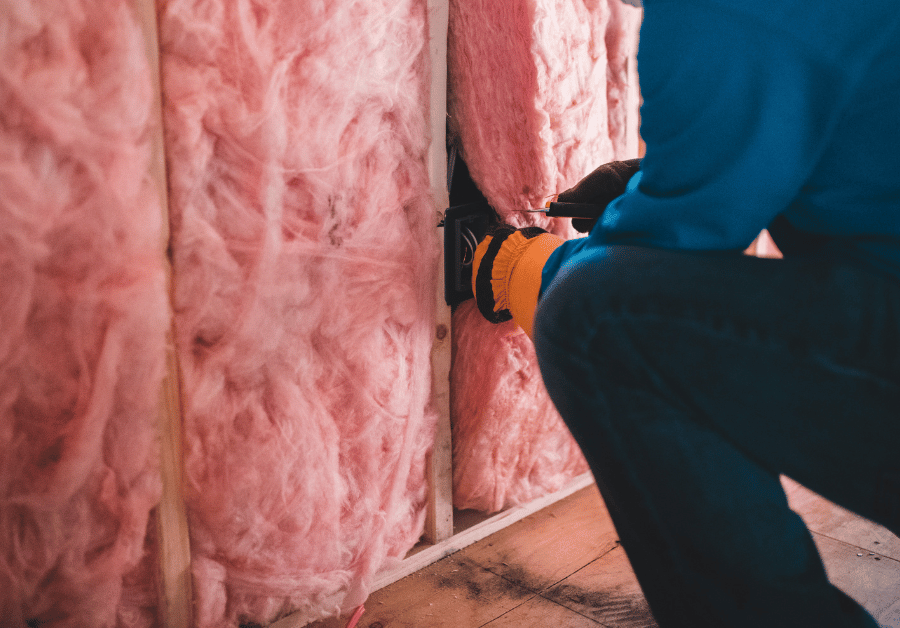Insulation Installer: Your Guide to a More Comfortable & Energy-Efficient Australian Home
In Australia's diverse and often extreme climate, from the scorching summers of Perth and Adelaide to the chilly winters of Melbourne and Hobart, and the humid conditions of Brisbane and Sydney, a well-insulated home isn't just a luxury – it's a necessity. It’s the unsung hero that keeps your living spaces comfortable year-round, significantly slashes your energy bills, and even contributes to a healthier environment. But achieving optimal thermal performance isn't a DIY job for most; it requires the expertise of a professional insulation installer.
This comprehensive guide will walk you through everything you need to know about finding and working with a top-tier insulation installer in Australia, ensuring your home is a haven of comfort and efficiency. We’ll delve into the nuances of insulation types, R-values, the installation process, and crucially, how to choose a certified professional.
Why Professional Insulation Installation is Non-Negotiable for Australian Homes
While the idea of a DIY project might seem appealing for a home improvement task, when it comes to insulation, cutting corners can lead to significant long-term problems. Here’s why engaging a skilled insulation installer is paramount:
Optimal Performance & Energy Efficiency
An experienced insulation installer understands the critical role of proper installation in achieving the advertised R-value (thermal resistance) of insulation materials. Gaps, compression, or incorrect placement can drastically reduce the effectiveness of even the highest quality bulk insulation or reflective insulation. They ensure seamless coverage in your roof space, walls, and underfloors, maximising your home's energy efficiency and providing consistent thermal comfort. This precision is key to truly lowering your heating and cooling costs.
Safety First: Handling Materials & Roof Spaces
Working with insulation materials, especially in confined spaces like a hot roof space, comes with inherent risks. Many insulation products contain fibres that can irritate skin, eyes, and lungs if not handled with appropriate personal protective equipment. Furthermore, navigating a roof space can be dangerous due to electrical wiring, structural elements, and potential fall hazards. Professional home improvement installers are trained in safe work practices and possess the necessary equipment to mitigate these risks, ensuring the safety of your property and everyone involved.
Compliance with Australian Standards & Building Codes
Australia has strict building codes and standards (such as AS 3999-2015 – Bulk Thermal Insulation – Installation, and AS/NZS 3000:2018 Wiring Rules) that govern insulation installation. A qualified insulation installer is well-versed in these regulations, ensuring your installation is compliant and safe. This includes proper clearance from heat sources like downlights and flues, and correct electrical wiring practices. Non-compliant installation can pose fire risks or electrical hazards, and may even void your home insurance. Always ask your potential insulation installer about their adherence to these crucial guidelines.
Tailored Solutions for Your Climate & Home Type
Australia's climate varies dramatically. What works for insulation Adelaide might not be ideal for the humidity of Brisbane or the extreme temperature swings of Melbourne. A professional insulation installer will assess your specific home, its construction, and your local climate to recommend the most suitable insulation type and R-value. This ensures you're investing in a solution that truly meets your needs, whether it's for ceiling insulation, wall insulation, or floor insulation.
What Does a Professional Insulation Installer Do?
An insulation installer, often part of a broader team of home improvement installers, performs a range of vital tasks to ensure your home is properly insulated. Their work goes beyond simply laying down batts; it's a strategic process designed for maximum effectiveness:
- Comprehensive Assessment: They begin with a thorough inspection of your home's existing insulation (if any), identifying areas of heat loss or gain, checking the condition of your roof space, walls, and subfloor, and assessing any ventilation needs.
- Expert Recommendation: Based on their assessment and your specific needs (considering your budget, climate, and desired R-value), they will recommend the most appropriate insulation type. This could include mineral wool batts, glasswool, polyester, rigid boards, spray foam, or reflective insulation like foil. They'll also advise on the ideal R-value for your area, ensuring optimal energy efficiency.
- Old Insulation Removal: In many cases, especially with older homes, existing insulation may be degraded, contaminated, or simply ineffective. Professional insulation services often include the safe and clean removal of old insulation, which can be a hazardous process due to dust, mould, or pests.
- Precise Installation: This is where their expertise truly shines. Whether it's laying ceiling insulation batts between joists, blowing loose-fill into difficult-to-reach roof space areas, installing rigid boards in walls, or fitting floor insulation, they ensure every piece is cut precisely, fits snugly, and avoids compression or gaps. They also ensure proper clearances around electrical fittings and flues, adhering strictly to safety regulations.
- Post-Installation Check: A good insulation installer will conduct a final inspection to ensure the work meets all standards and your expectations.
Choosing the Right Insulation Installer in Australia: An EEAT-Driven Approach

When searching for an insulation installer, especially in competitive markets like Sydney, Melbourne, Perth, Brisbane, Adelaide, or Hobart, it’s crucial to apply the EEAT (Experience, Expertise, Authoritativeness, Trustworthiness) framework. This ensures you hire a professional who not only gets the job done but does it right, safely, and effectively.
1. Experience: Look for a Proven Track Record
An experienced insulation installer has encountered a wide variety of home types, insulation challenges, and climate conditions. They understand the nuances of different building materials and how they interact with insulation. Ask potential installers:
- How long have they been providing insulation services in your area (e.g., insulation Adelaide or insulation Sydney)?
- Can they provide examples of similar projects they've completed?
- Do they specialise in specific types of insulation or home structures (e.g., older homes, new builds, commercial properties)?
For instance, if you have a heritage home in South Australia, you'd want an installer familiar with the unique challenges of older structures and perhaps sensitive materials. Their practical experience translates directly into quality work.
2. Expertise: Certified & Knowledgeable Professionals
Expertise is about having the in-depth knowledge and specific skills required. This is where certifications and adherence to Australian Standards become vital. When vetting an insulation installer, it's crucial to check their credentials and ask about their training:
- Building Licenses: In most Australian states, insulation work requires a building license. For example, in South Australia, it's essential to check that your insulation installer has a building license that permits them to carry out insulation work. You can often verify this through state government licencing bodies (e.g., SA.GOV.AU provides guidance on checking tradesperson licenses).
- Certifications: Look for installers who hold relevant certifications. Some bodies, like the Energy Efficiency Council (EEC), offer certifications such as 'Certified Insulation Installer' (CII). Ask for their certification number CII.
- Certification Details: Don't just ask if they're certified; ask for the specifics. Confirm the date first certified certification and verify the certified certification expiry date. This ensures their qualifications are current and maintained.
- States of Operation: Ensure their certification and licensing cover the states of operation where your property is located, whether it's NSW, VIC, QLD, SA, WA, TAS, or the ACT.
- Knowledge of R-Values and Types: A true expert can clearly explain the concept of R-value and recommend the optimal R-value for your specific climate and home area (e.g., ceiling wall and floor insulation). They should also be able to articulate the pros and cons of different insulation type ceiling wall and floor insulation options like bulk insulation (batts, rolls) vs. reflective insulation (foil).
- Understanding of Australian Standards: They should be familiar with and adhere to Australian Standards such as AS 3999-2015 for installation and AS/NZS 3000:2018 (the 'Wiring Rules') for electrical safety around insulation.
3. Authoritativeness: Backed by Reputable Sources
An authoritative insulation installer will provide information consistent with government guidelines and industry best practices. They should be able to refer you to reputable sources for further information, demonstrating their commitment to accurate, reliable advice. Consider asking:
- Where do they source their information regarding best practices and compliance?
- Do they align with guidelines from bodies like YourHome.gov.au, Australia's key national guide to environmentally sustainable homes? (YourHome.gov.au Insulation Guide)
- Can they provide references or testimonials from past clients?
This shows they are not just installing, but also educating and operating within established, credible frameworks.
4. Trustworthiness: Transparency, Reviews & Guarantees
Trust is built on transparency, clear communication, and reliability. Here’s what to look for:
- Clear Communication & Free Quote: A trustworthy insulation installer will provide a detailed, itemised free quote upfront, explaining all costs and the scope of work. They should be happy to answer all your questions without pressure.
- Reviews and Testimonials: Check online reviews on platforms like Google, ProductReview, or industry-specific sites. Look for consistent positive feedback regarding their professionalism, quality of work, and customer service.
- Insurance & Warranty: Ensure the installer carries appropriate public liability insurance. Also, inquire about warranties on both the insulation materials and the installation work itself.
- Professionalism: Their team should be punctual, respectful of your property, and tidy up after the job is complete.
Understanding R-Value and Insulation Types

Before you hire an insulation installer, it's helpful to understand the basics of insulation. The 'R-value' is a measure of thermal resistance – the higher the R-value, the better the insulation's ability to resist heat flow. Different areas of your home (ceiling, walls, floor) and different climates require different R-values.
Common Insulation Types in Australia:
- Bulk Insulation (Batts & Rolls): Made from materials like glasswool, mineral wool, or polyester. These trap air within their structure to resist heat transfer. Ideal for ceiling insulation, wall insulation (in cavities), and floor insulation. They come in various R-values.
- Reflective Insulation (Foil): Typically foil-faced sarking or blankets, these work by reflecting radiant heat. Often used in roof space applications, under roofs, or in walls to block heat gain in summer. They are most effective when there's an air gap on at least one side.
- Loose-Fill Insulation: Blown into cavities or roof space, often made from cellulose or mineral wool. Good for irregular spaces or existing walls without needing to remove plasterboard.
- Rigid Boards: High R-value per thickness, often used in walls, floors, or external cladding.
- Spray Foam Insulation: Creates an airtight seal, excellent for thermal performance and air sealing. Requires specialist application.
Your insulation installer will help you determine the best insulation type and R-value for your specific needs, considering factors like your home's construction, local climate, and budget.
The Insulation Installation Process: What to Expect

Knowing what to expect from your insulation installer can make the process smoother and give you peace of mind:
- Initial Consultation & Free Quote: The process typically begins with a site visit. The insulation installer will assess your home, discuss your needs, and provide a detailed free quote. This quote should clearly outline the scope of work, the recommended insulation type, R-value, and total cost.
- Preparation: Before installation, the crew will prepare the area. This might involve clearing the roof space of debris, ensuring electrical wiring is safe, or if necessary, removing old, ineffective insulation.
- Installation: The improvement installers will then proceed with the installation, carefully cutting and fitting batts or rolls, blowing in loose-fill, or applying spray foam, ensuring no gaps and proper clearances. They follow Australian Standards rigorously.
- Clean-up: A professional team will ensure your home is left clean and tidy after the work is complete.
- Final Inspection: A walk-through with the lead insulation installer to confirm satisfaction and address any final questions.
Beyond Installation: The Long-Term Benefits of a Well-Insulated Home
Investing in professional insulation services by a skilled insulation installer offers a cascade of benefits that extend far beyond the initial installation date:
- Significant Energy Bill Savings: This is arguably the most tangible benefit. By reducing heat transfer, insulation drastically cuts down the need for excessive heating in winter and air conditioning in summer. Many homeowners report savings of 20-40% on their energy bills, making it a powerful home improvement for your wallet.
- Enhanced Indoor Comfort: Say goodbye to hot spots in summer and cold drafts in winter. A well-insulated home maintains a more stable and comfortable indoor temperature, creating a pleasant living environment regardless of the outside climate.
- Reduced Carbon Footprint: Lower energy consumption means less reliance on fossil fuels for heating and cooling, directly contributing to a reduction in greenhouse gas emissions. This makes your home more environmentally friendly and contributes to broader energy efficiency goals.
- Improved Acoustic Performance: Many insulation materials, particularly bulk insulation, also provide excellent sound dampening properties. This means less noise from outside traffic, neighbours, or even within the house, contributing to a quieter, more peaceful home.
- Increased Property Value: A home with modern, high-quality insulation is more attractive to potential buyers. It's an invisible upgrade that adds significant value, making it a smart long-term investment.
- Mould and Moisture Control: Proper insulation can help regulate indoor temperatures and reduce condensation, which in turn minimises the risk of mould growth and moisture issues, contributing to better indoor air quality.
- Question 1: Why is professional insulation installation important in Australia?Question 2: What types of insulation are best for Australian homes?Question 3: How do I know if an insulation installer is qualified?Question 4: What are the long-term benefits of professionally installed insulation?
Ready to Transform Your Home's Comfort and Energy Efficiency?
Choosing the right insulation installer is a significant decision that impacts your home’s comfort, energy bills, and overall value for years to come. By focusing on experience, expertise, authoritativeness, and trustworthiness, you can ensure your investment pays off.
Don't let the Australian climate dictate your comfort or your energy bills. Take the first step towards a more energy-efficient and comfortable home today!
Ready to connect with top-rated insulation installer professionals in Sydney, Melbourne, Perth, Brisbane, Adelaide, Hobart, or anywhere across Australia? Get competitive quotes from trusted local experts quickly and easily.
